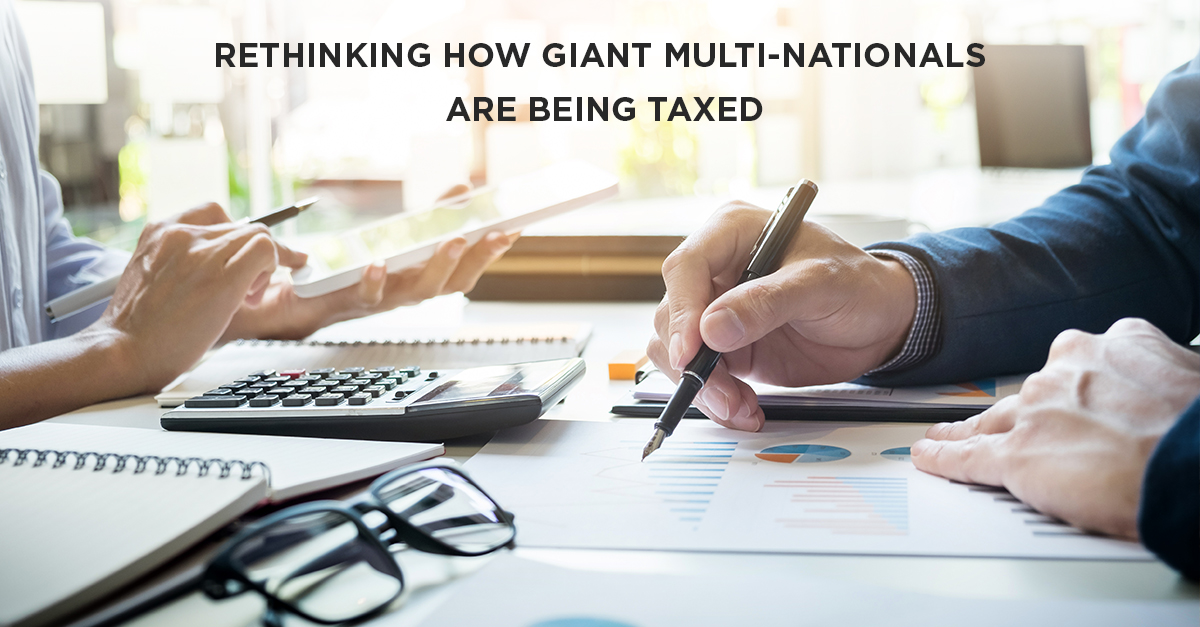For a while now, we have been hearing about plans by the Organization for Economic Cooperation and Development (OECD) to wake-up and shake-up the business world by overhauling the global corporate tax system. Finally, it seems that sometime during this summer of 2020 that just might become a reality.
It has been estimated by global economists that almost half of the profits made by multinationals from their overseas dealings are transferred to tax havens. Therefore, in my opinion this overhauling will be only fair because governments around the world are losing an estimated USD 500 billion to such arrangements, creating a world in which corporations gain from the talent and labour society provides them, but don’t give back adequately in return.
A change is inevitable
The OECD’s proposal will allow countries to calculate taxes that they should get from the multinationals, depending not just on local business but also on their profit margins across the world. Corporations with a presence across multiple national borders have been getting with gaming the system by setting up offices in low-tax countries. This has naturally raised the hackles of several governments, especially those of the more powerful of the emerging economies, such as India, who have made the case for changing their taxation laws unilaterally if the global laws are not reformed soon.
Recently, Apple CEO Tim Cook, while in Ireland where the tech giant has a base, threw his weight behind the reforms, saying he agreed that the system was broken and needed to be fixed. He backed changes which include multinationals eventually being forced to pay taxes even in countries in which they are not present physically, or where their presence is minimal.
Why we need the laws to change
The Independent Commission for the Reform of International Corporate Taxation is promoting a global law that would guarantee that the MNCs profits and related taxes would be shared among the countries in which they have a presence – virtual or physical – based on factors such as resources, sales, employment and digital traffic. This would definitely benefit developing countries from where the majority of these MNCs’ workforce comes.
The first reason we need to change international taxation laws is because countries that have millions of consumers and users of these companies find that they are not benefitting monetarily simply because these companies do not have an actual physical presence there. Secondly, it would prevent multinationals from paying the minimal amount or avoiding taxes altogether, the latter being something which many of them seem to be able to do with impunity, under the current regulations. In addition, the system is harmful to low-income countries and denies them the revenue they really need to push economic growth, decrease poverty, and develop a sustainable society.
Breaking away from an old system
The changes will entail breaking away from a system that has been in place since the “Roaring 20s”; a system whose principle aim was to make sure that companies paid taxes from profits made by dealing directly with customers. Businesses in the early 1900s, and up until a couple of decades ago, abided by this law because they were brick and mortar companies that actually interacted with customers physically. Now with virtual stores and online shopping being more the norm, companies can serve anyone, anywhere, anytime, without actually even having a presence in that particular country.
The OECD proposes that the first thing that needs to be determined is the revenue the company is picking up from a particular country, and if that amount meets with the ceiling that country has set. The OECD is looking to resolve this issue this year, and is afraid that if an agreement is not reached, then many countries will independently begin to impose taxes on these companies, which could have an even more negative impact on an already very fragile global economy.
It is unfortunate but true that the countries that are global economic powers have generally structured their international corporate tax laws without considering their effect on the developing world. An analysis by the International Monetary Fund shows that non-OECD countries lose around USD200 billion a year. These are the countries whose voices need to be heard at the OECD table and this means that both economically strong and emerging nations need to come together to find a viable solution. It is patently obvious that the current global tax laws are archaic and need a rebooting so that they will benefit all countries/governments, especially the economically weaker ones.
Of course, there will be, and is, opposition to this – with one school of thought expounding that the OECD’s proposals just might give these multinationals more loopholes to hide behind. If an MNC is going to make money from consumers in a country in which it doesn’t actually have a physical presence or one that is barely-there, then it’s only fair that it pays tax on a fair and rationally calculated basis. Not only will this create a fairer world, it will create a more sustainable and stable global economy. If every country gets its fair share of taxes, then there is a high probability that we will end up seeing more economic surges than slumps in the future. Creating a win-win world translates into one that can finally be free from boom-bust cycles and predatory capitalism.

